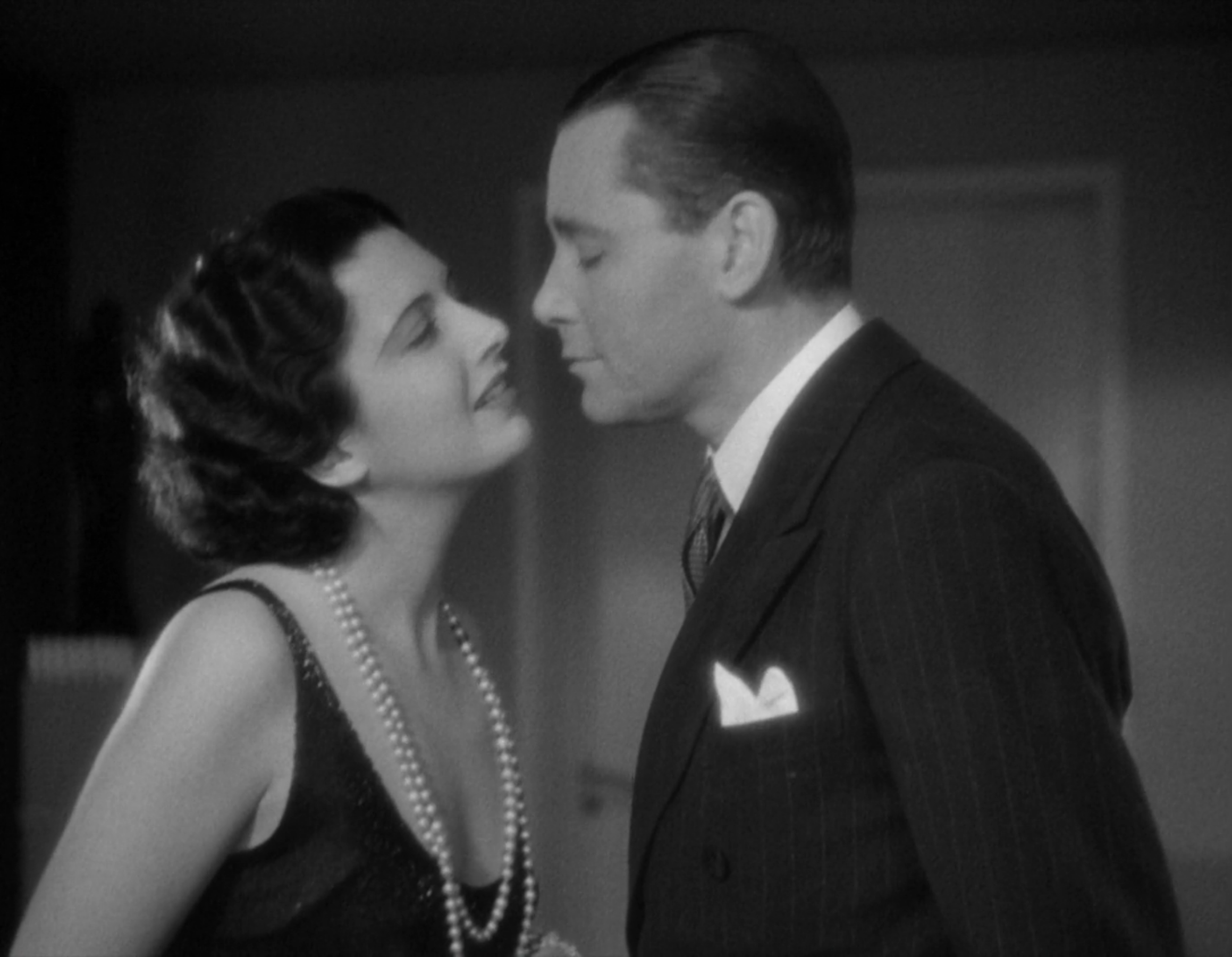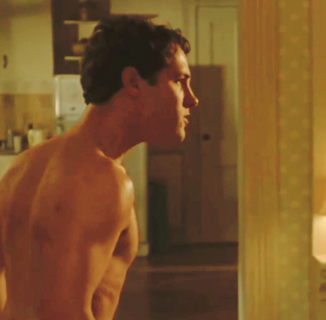To know the work of Ernst Lubitsch—director, producer, sometime-actor—is to fall in love. It’s not just that he laid the groundwork for what would become the modern romantic comedy, or that he served up Americans with a taste of European glamour they couldn’t help swoon over while laughing at. It’s that embedded in Lubitsch’s entire ethos is a certain messy, deeply bisexual, often polyamorous sensibility around love and romance. A Lubitsch film is sexy and funny and talky and weird: it’s full of double takes and second glances. There are doors opening and closing, locking and unlocking. The placement of a single prop can tell you everything. The discussion of said prop can tell you even more.
I was first introduced to the wonderful world of Lubitsch by one of my favorite film writers on earth, the late critic James Harvey, in his incredible compendium: “Romantic Comedy in Hollywood: From Lubitsch to Sturges.”
“Lubitsch makes us more conscious than ever,” Harvey writes, “of how we understand, of how we get the point of a joke, of the sort of things we know without having to be told.”
Perhaps nowhere is this more in evidence than Lubitsch’s 1932 comedy of manners Trouble in Paradise, in which the potential throuple from hell flirt with their less bourgeois instincts for a few weeks before settling back into the kind of lives—and the kind of sex—that makes them comfortable.
We meet the world-famous gentleman crook Gaston Monescu (an unbearably hot Herbert Marshall) as he leaps from the balcony of the Venetian apartment he’s just robbed to keep a date with Lily (Miriam Hopkins), another crook pretending to be part of the baronetcy. The two have a charming date, expertly robbing each other as foreplay. When Lily informs Gaston that she’s already taken from him the wallet he just robbed from someone else, he asks her if she minds if he keeps her garter, which he was busy filching from her while she was grifting him. Game recognize game, and it’s love at first sight for the chiseling pair.
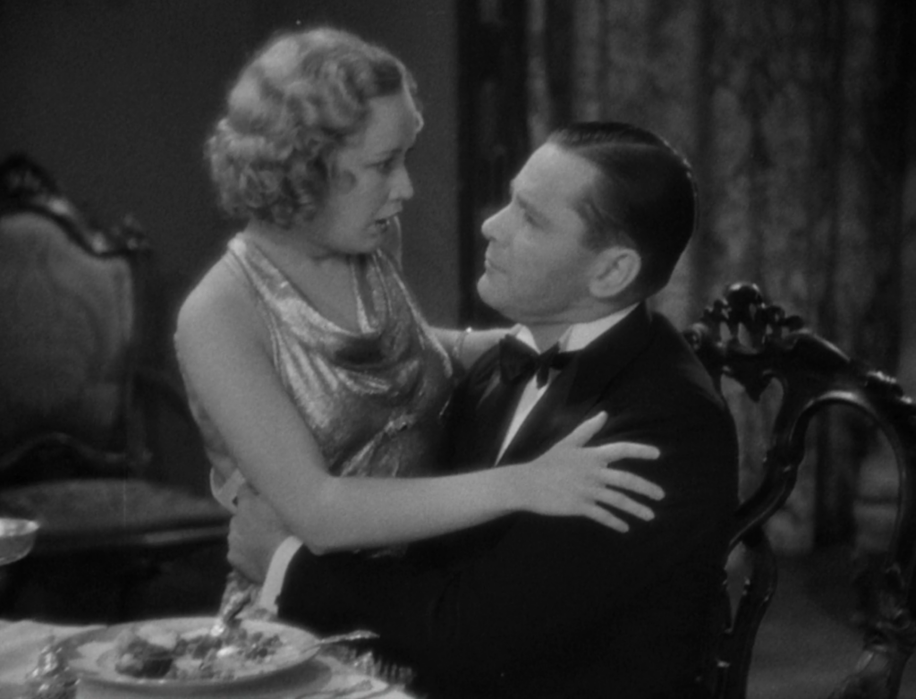
But love at first sight never lasts long in the Lubitsch extended universe: temptation always waits just around the corner, usually wearing a stunning evening gown by Irene.
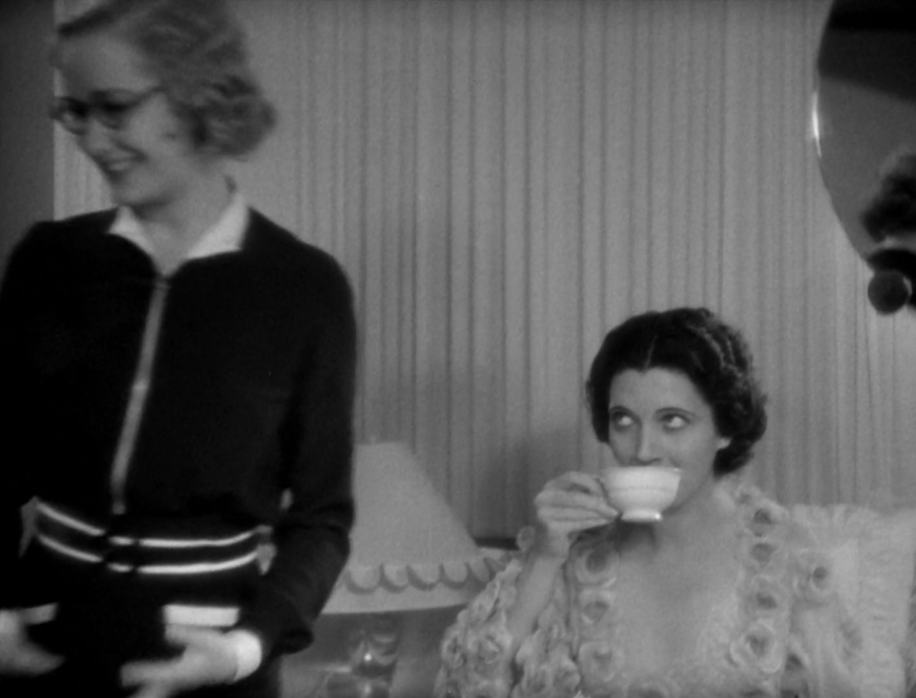
In Trouble in Paradise, temptation is Kay Francis as Madame Colet, the widowed CEO of a profitable perfume empire. Francis was bisexual in real life, and she lends an air of ravenous sexuality to her performance as the glittering woman of empire hopelessly out of the loop in regard to just how her millions are being invested. When Gaston steals her outrageously expensive purse at the opera, he realizes it would be more profitable to simply return it for the advertised reward. When the two meet, of course, the chemistry is off the charts, and we see that there’s something less than professional behind Madame Colet’s decision to hire Gaston as her secretary on the spot—right after he’s promised to give her a good spanking. “In a business way, of course.”
For three glorious weeks, Gaston and Madame Colet engage in an exquisite edging process: they know they can’t f*ck, and that’s why they want to so badly. After all, there’s her reputation to consider, and the fact that he’s not exactly single. Gaston cases the joint and prepares for a big robbery of the whole estate with Lily’s help, all while paying court to Madame Colet. But he can’t help being human, after all. The two are electric together, possessed of the kind of sexuality that thrives under constraint. Every word they say to each other is foreplay, and their manner of flirting is a very sophisticated mode of seduction indeed.
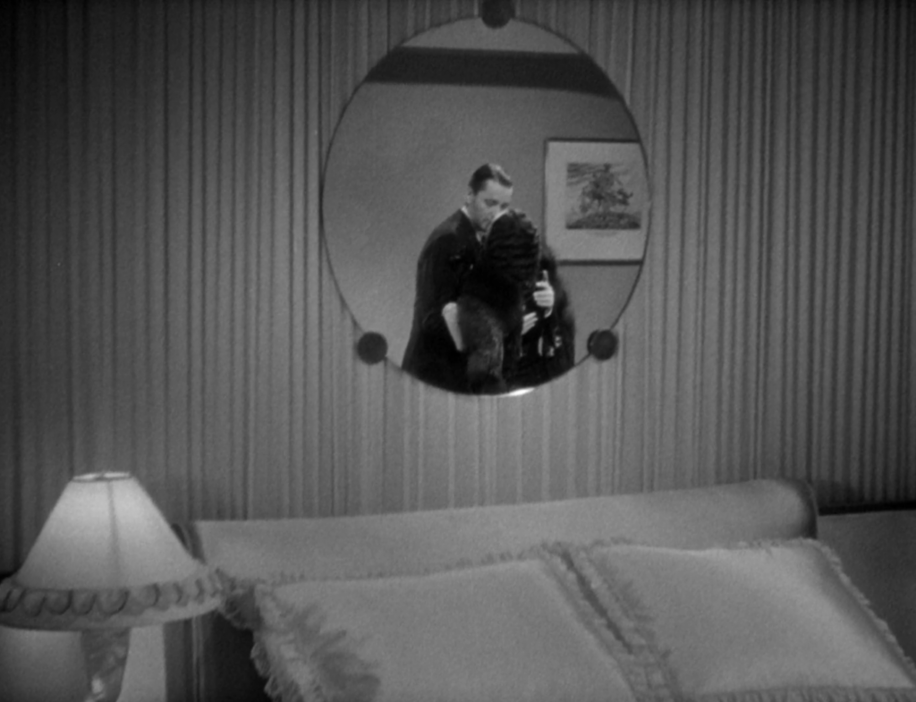
Everything comes to a head at the end of those three weeks, when Gaston and Lily have to get out of dodge. They’ve been made, and their plans to rob Madame Colet blind are on the verge of being foiled. But, true to form, Gaston’s dick ruins everything. He risks everything for a quickie with Madame Colet, delaying his and Lily’s plans to flee the country and tipping Lily off to the fact that she’s about to be cheated on. When Madame Colet comes home from an engagement early, everything comes out. “I came here to rob you,” Gaston tells her. “But unfortunately I fell in love with you.”
There’s something less than professional behind Madame Colet’s decision to hire Gaston as her secretary on the spot—right after he’s promised to give her a good spanking. ‘In a business way, of course.’
But instead of being upset, Madame Colet could care less. And it’s here that the film gives us that glimpse of the future we haven’t been bold enough to expect. Madame Colet, Lily, and Gaston might as well be in a throuple: all that’s missing from their messy, bitchy dynamic is a well-worn copy of “Polysecure.” But even with this tantalizing proposition hanging in the balance, the three decide it’s best to go their separate ways. Gaston bids Madame Colet farewell and gets in a cab with Lily. The two crooks are surly with each other, until they reveal to each other what they’ve managed to rob from Madame Colet’s house. Order is restored, and there is honor among thieves after all.
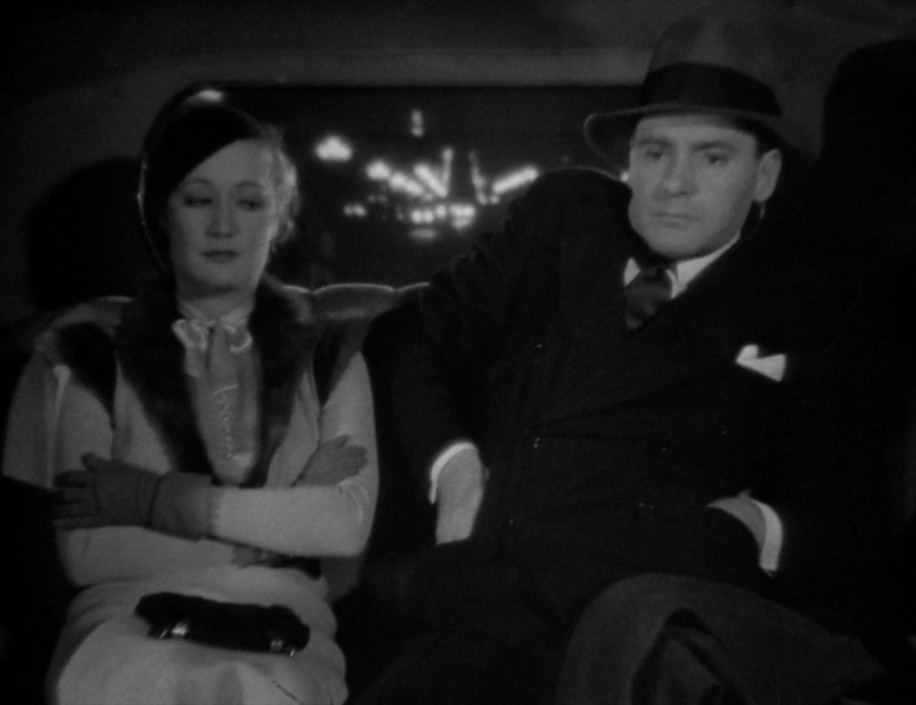
It’s a bit of a disappointment that Trouble in Paradise ends with only two people, instead of the advertised three, riding off into the sunset. Then again, it was 1932, and in only a year’s time, Lubitsch would come out with a true polyamorous movie with 1933’s Design for Living.
But that, my friends, is a story for another day. ♦
Trouble in Paradise is streaming on the Criterion Channel as part of the “Paramount Pre Code” series.
Help make sure LGBTQ+ stories are being told...
We can't rely on mainstream media to tell our stories. That's why we don't lock our articles behind a paywall. Will you support our mission with a contribution today?
Cancel anytime · Proudly LGBTQ+ owned and operated
Read More in Entertainment
The Latest on INTO
Subscribe to get a twice-weekly dose of queer news, updates, and insights from the INTO team.
in Your Inbox

